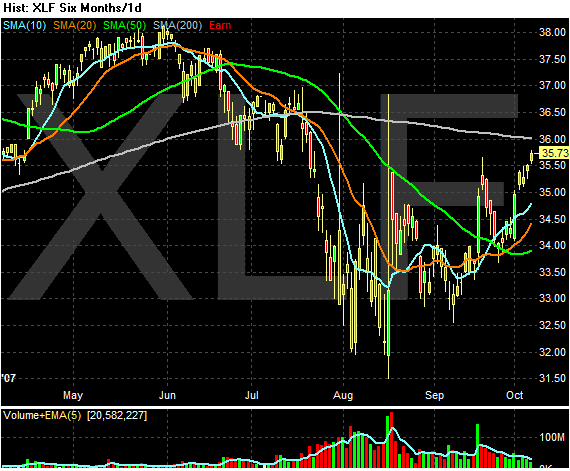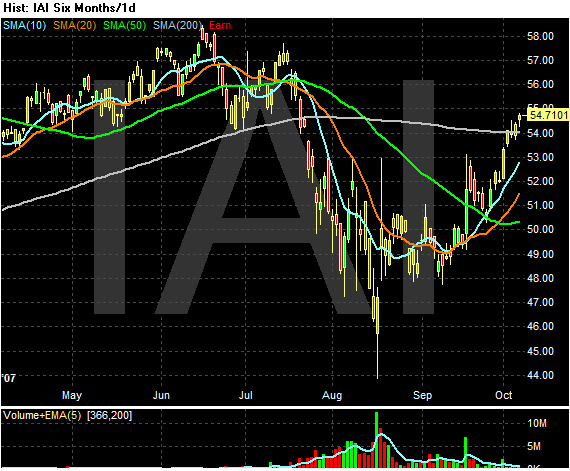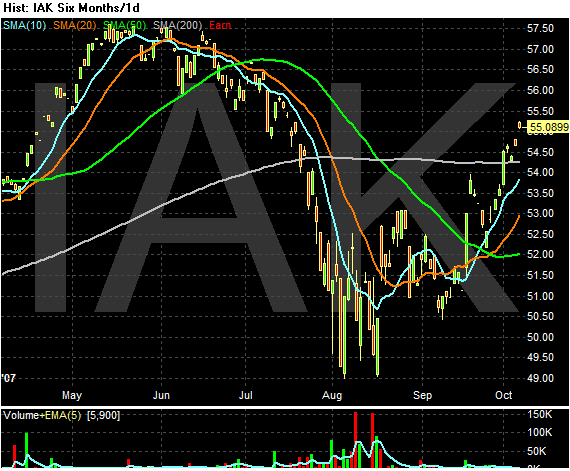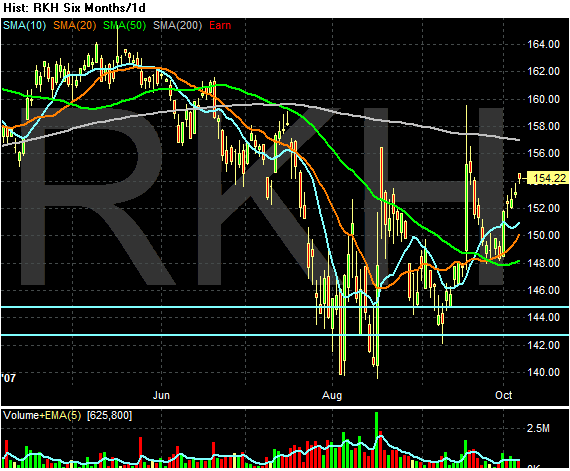Merrill Lynch (MER - Cramer's Take - Stockpickr - Rating) said third-quarter profits will be wiped out by a huge writedown tied to this summer's credit crunch.
The New York-based brokerage firm said it expects to lose 50 cents a share for the quarter, reversing the year-ago $2-a-share profit and falling well short of analysts' $1.24-a-share profit forecast.
Merrill will take $4.5 billion in writedowns on its holdings of collateralized debt obligations and subprime mortgages. It will also write off $967 million worth of leveraged lending commitments.
From the AP:
Washington Mutual Inc. said Friday that the weak housing market and the recent mortgage crunch will lead to a 75 percent drop in its third-quarter net income, making it the latest financial institution to warn investors it took a major hit over the summer.
WaMu, the nation's largest savings bank, reported net income of $748 million in the third quarter of 2006, meaning third-quarter 2007 net income is likely to be somewhere around $187 million.
The decline in third-quarter income will mostly come from rising provisions for loan losses and write-downs of mortgages Washington Mutual currently holds.
The financial sector is broken down into a few ETFs

The XLF was a mess after the mid-July sell-off. Volume spiked and the index moved below the 200 day SMA which is a bearish signal. Now the 10 and 20 day SMAs are all moving up. The 50 day SMA will probably join the SMAs by moving up sometime over the next few weeks. However, the index is still below the 200 day SMA. We'll need to move above this level before even thinking about a recovery in this sector.


Both the broker dealer ETF and the Insurance ETF have the same characteristics as the XLF ETF regarding their moving averages. However, both of these ETFs are trading above the 200 day SMA. That's a good sign. But with the latest news coming out of the BD sector these sectors have some big problems coming down the pike.

Regional banks have the same problem technically as the XLF in they are still trading below the 200 day SMA. Clearly a bearish problem.
The news from the financial sector this earnings season has been terrible. However, my guess is traders are looking at all of these announcements as one time events that won't be repeated next quarter.
There is still an underlying assumption that we won't have any more problems in the credit markets -- that everything is AOK. I'm not sure that is a correct assumption. There is a ton of debt out there backed by sub-prime mortgages and we still have a year and half of resets to go through. In other words -- there is still plenty of reason to be concerned.